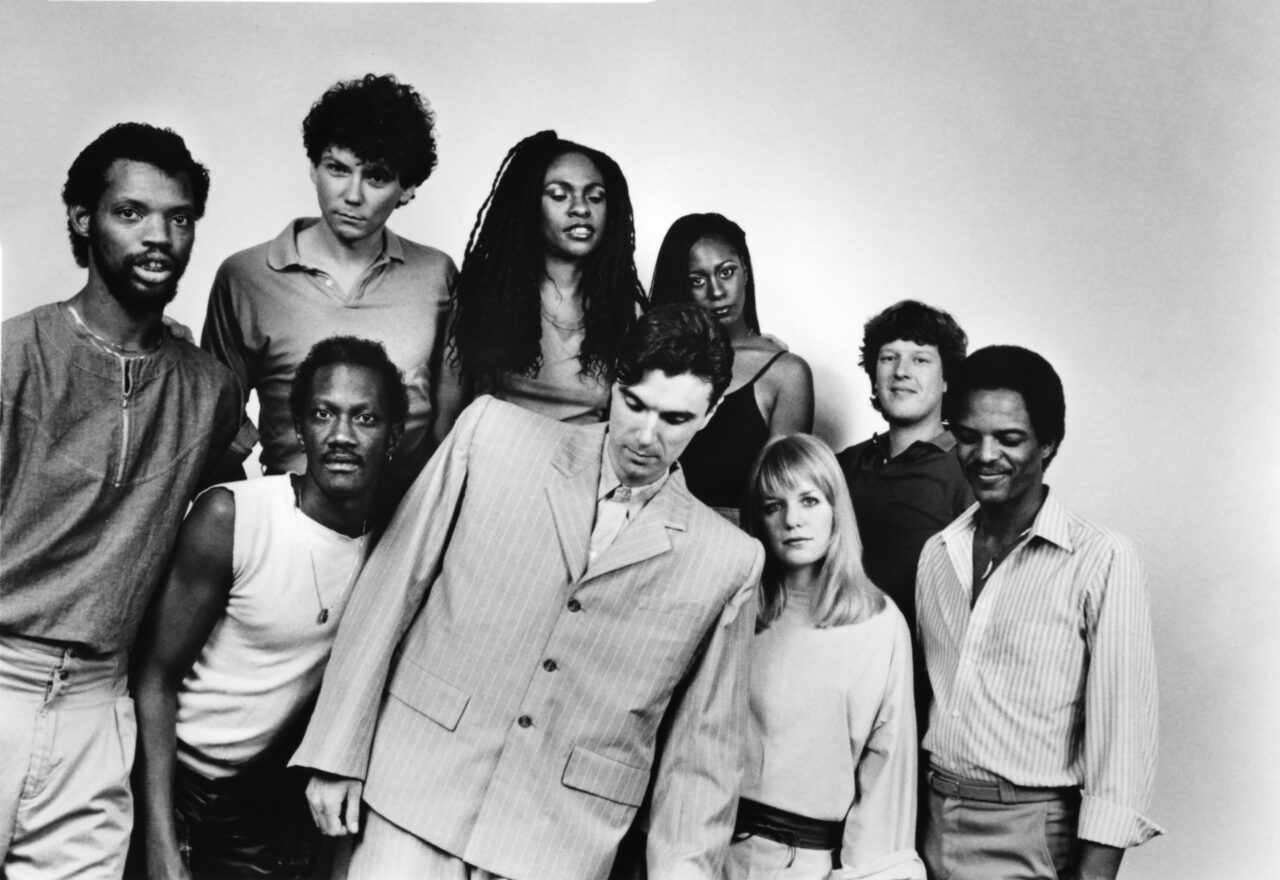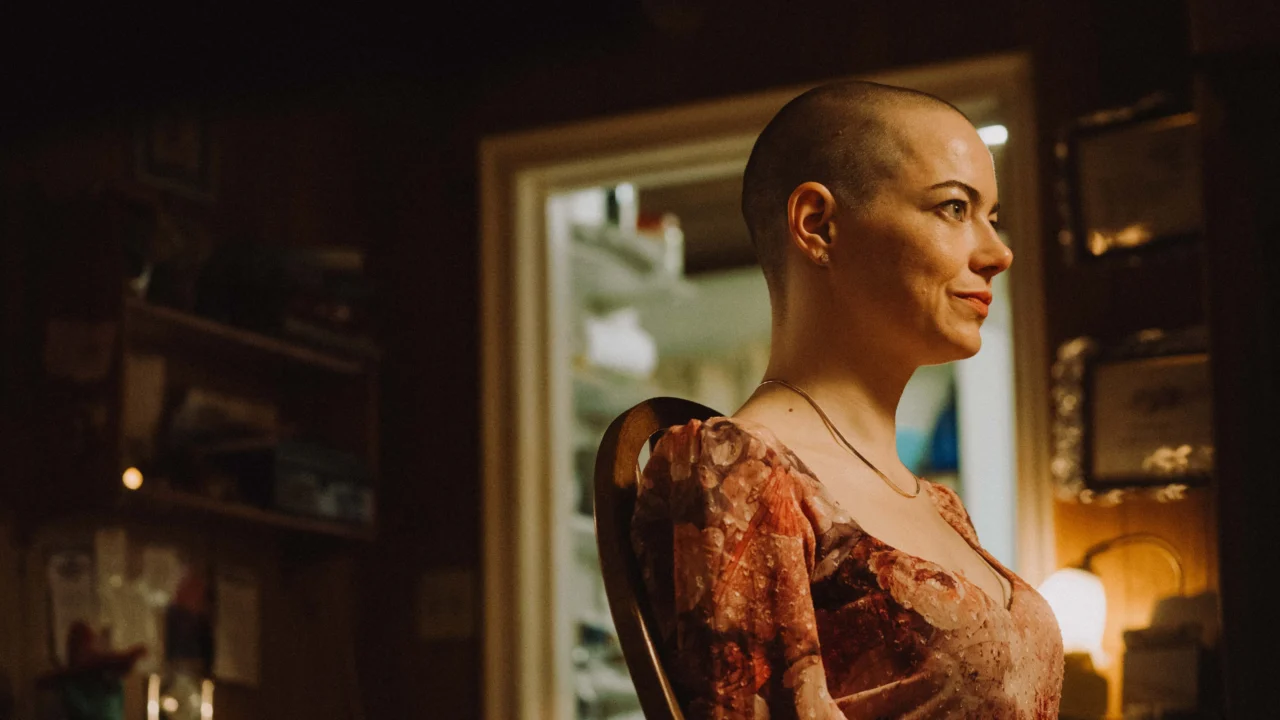The legendary live film “Stop Making Sense,” capturing Talking Heads’ iconic performance at the Pantages Theatre in Hollywood in 1983, will be released nationwide in a 4K restored version by A24 starting from February 2nd. Additionally, screenings in IMAX theaters across the country have been confirmed.
The film showcases an extraordinary stage that pushes live performance to the realm of art. During its release in Japan in the 1980s, despite being shown only in late-night screenings, it achieved an unprecedented box office revenue of 100 million yen.
Known as mavericks in the NY punk band scene and sometimes referred to as an “intellectual band,” how did they create the masterpiece of a live film? This exploration delves deep into the band’s history, their encounter with Afrobeat, and the allure of the film.
*Please note that this article contains descriptions related to the content of the movie. Please be aware of this beforehand.
INDEX
Artistic Rebellion: The Aspirations of Talking Heads in the NY Punk Scene
Formed by David Byrne (Vo/Gt), Chris Frantz (Dr), Tina Weymouth (Ba), and Jerry Harrison (Key/Gt), Talking Heads emerged from the legendary punk venue “CBGB” in New York, known as the epicenter of the New York punk scene that hosted acts like Ramones and Patti Smith. However, it’s crucial to note that they deviated from the stereotypical image associated with punk.
Surprisingly, Byrne, Frantz, and Weymouth, all three of them, graduated from the prestigious Rhode Island School of Design, one of the top art universities in America. Harrison, on the other hand, is an alumnus of Harvard University. This positioned them as an intellectual band, distinct from the typical punk stereotype.
In the punk scene of that time, Talking Heads stood out by emanating an intelligent atmosphere. When people think of punk, they often envision the “political and social rebellion” associated with cities like London. However, as they took the stage wearing Lacoste tennis T-shirts, Talking Heads aimed for “musical and artistic rebellion,” setting them apart from the conventional punk image.

INDEX
Intellectual Overflow in their Early Musical Style
The track “Psycho Killer,” featured on the band’s first album ‘Talking Heads: 77,’ depicts a dual personality murderer and stands out as one of the band’s signature songs. To portray the character of a “dual personality,” they crafted an intellectual and cynical composition by weaving together lyrics in both English and French, showcasing their distinctive style.
INDEX
Chasing Afrobeat: The Journey and Exploration
With “More Songs About Building And Food,” produced by Brian Eno, and “Fear Of Music,” the third studio recording, also co-produced by Eno, Byrne encountered African beat.
The first song “I Zimbra,” the first track on “Fear Of Music,” was the first step in the fusion of Afrobeat and rock that the band would follow. Byrne completed the song by adding a groovy rhythm and melody to a nonsense poem by Hugo Bal, the German poet who led the Dadaist movement. Robert Fripp of King Crimson plays guitar, and congas, surdos, djembes, and other percussion instruments from around the world are also used.
In 1980, the band released the classic album “Remain In Light,” a fusion of Afrobeat and rock that reached its highest point. It featured Adrian Breaux, who played with King Crimson and Nine Inch Nails, on guitar, and Jon Hassell, known for “The Fourth World,” on trumpet.
Just prior to the release of “Remain In Light,” the band began touring live with a big band formation, including support musicians as seen on “Stop Making Sense.”

In 1981, Byrne and Eno, who had begun their solo careers, released a co-production, My Life In The Bush Of Ghosts. Meanwhile, husband and wife Franz and Weymouth formed Tom Tom Club as a side project.” Wordy Rappinghood” and “Genius of Love” were hits.
INDEX
Transforming Concert Tours into Film, Encountering Jonathan Demme
Leaving Brian Eno, the band self-produced “Speaking In Tongues,” a danceable album with a new wave disco vibe. The film “Stop Making Sense” chronicles the tour that accompanied the album’s release.
The film was directed by Jonathan Demme, who would later become known for Silence of the Lambs. The idea for the film came about after Jonathan Demme saw a concert at the Greek Theatre in Los Angeles. Despite the difficulties in raising funds for the film (the band itself raised most of the $1.2 million production cost), they managed to make it a reality, documenting three days of live performances at the Pantages Theatre in Hollywood in December 1983 with seven cameras.
Demi’s appeal lies in her use of long shots and her sense of bringing out the raw charm of her subjects. These characteristics, which can be seen in the music videos for “Silence of the Lambs” and New Order’s “The Perfect Kiss,” are also on full display in this film.
Most live-performance films tell the story of a band, with the band performing, the audience going wild, and the band interviewing in the insert. But what about this film? The interviews are eliminated, and the camera is kept strictly in the “audience’s point of view. What this creates is a raw sensation as if you were there. The audience of the film “experiences” the 90-minute frenzy in the same way as the audience at the venue.























